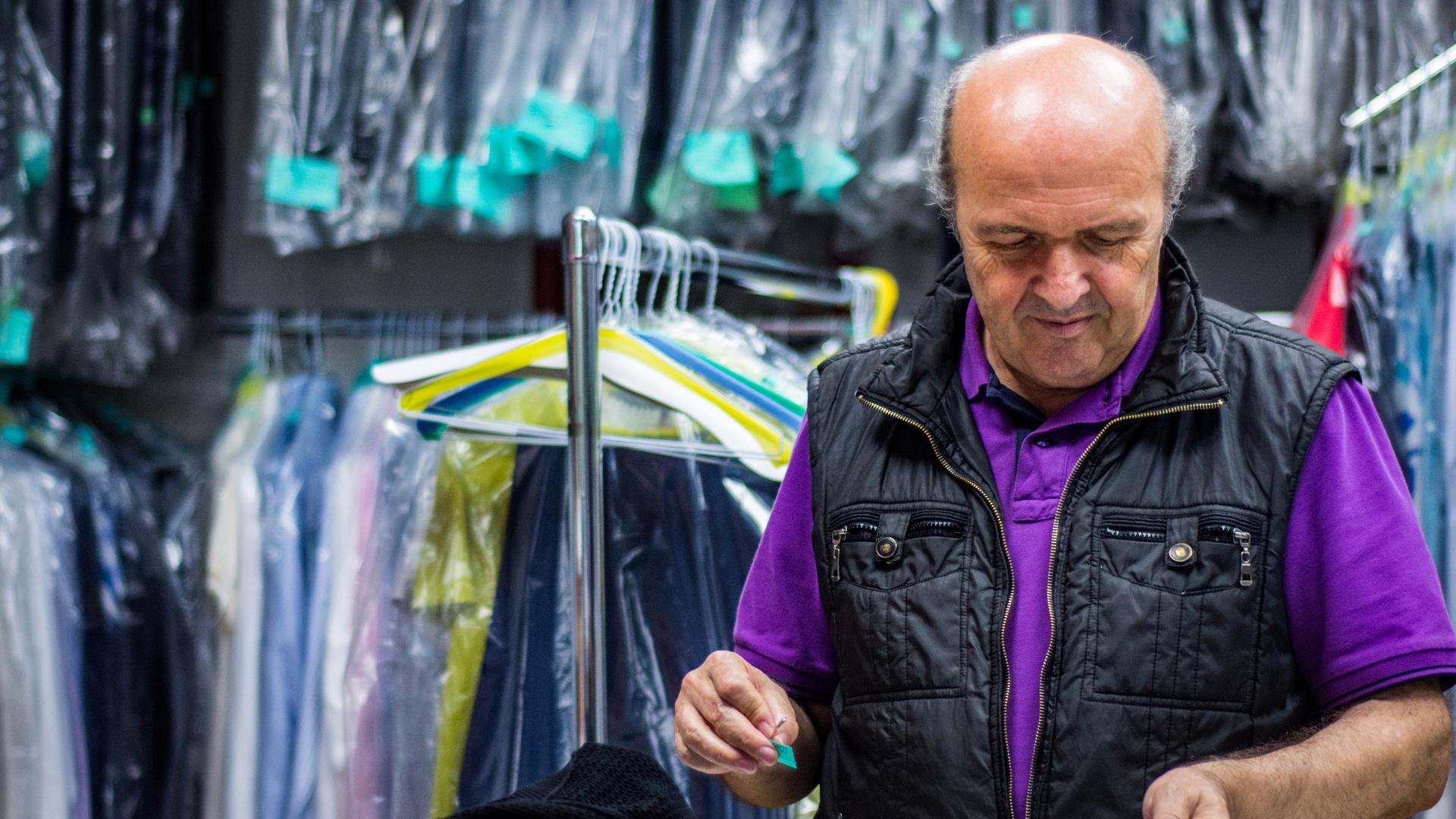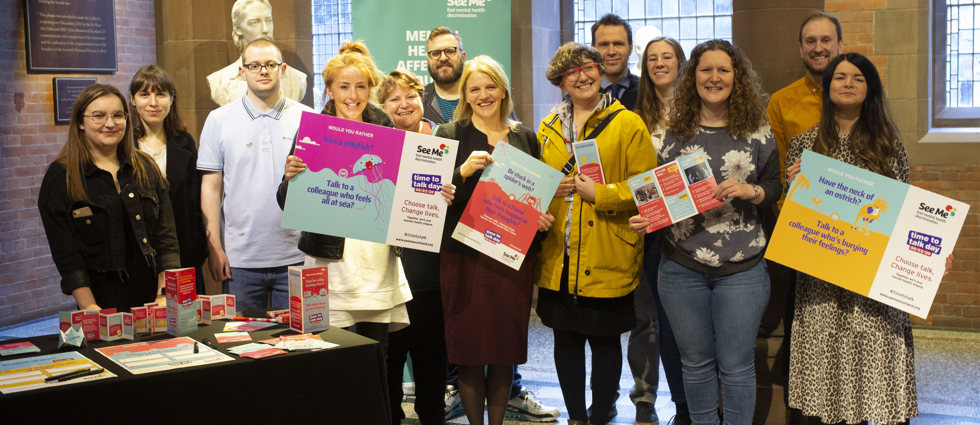Our Latest News
LAST CHANCE FOR EARLY BIRD – Hr NETWORK ‘FUTURE LEADERS’ Conference & Exhibition 2024
LAST CHANCE FOR EARLY BIRD – Hr NETWORK ‘FUTURE LEADERS’ Conference & Exhibition #HRNC24 – Thursday 9th May 2024 – BT Murrayfield Stadium
We’d love to see you at this years ‘FUTURE LEADERS’ Conference and Exhibition and if you haven’t done so already, this is your LAST CHANCE to save £40 per booking as the EARLY DISCOUNT ends TODAY!! You can still book your delegate place after today however the cost will increase to £165+VAT per delegate.
SAVE £40 NOW!!! – TODAY ONLY!!
(By booking TODAY*)
The Early Bird discount for each delegate attending the Conference & Exhibition on Thursday 9th May is £125+VAT and we have group booking discounts for groups of 5 delegates or more. Please note that the Early Bird booking discount is available until 29th February 2024. From 1st March 2024, the cost per delegate is £165+VAT.
Delegate Package includes:
- 6 Keynote Speakers (Including 1 Panel Discussion)
- Networking & Exhibitor Area
- Lunch & Refreshments
- Delegate Bag and Goodies
- Official Conference Programme & Delegate List
- Plus much, much more
FUTURE LEADERS
The full list of Keynote Speakers and session details is also available on the Conference page of our website – LINK BELOW.

Keynote Sessions:
- Jane Sparrow, The Culture Builders – Leading Through the Revolution: Equipping leaders to manage themselves and others through change and evolution
- Matt Swarbrick, CMI – Empathy In Leadership: ‘Putting yourself in someone else’s shoes’
- Katie Leveson, BBC Studioworks – LeadershipWorks: Ensuring the right culture, shape and skills are in place for the future of media
- The Big Picture Senior HR Panel Discussion, Chair by Clare Moore: Discussing aspirations, challenges, and expectations of future workplaces
- Jacques Quinio, Right Management – TITLE TO BE ANNOUNCED
- Zara Janjua and Atholl Duncan, The Edge Consultancy – The 7 Secrets of Inspiring Communication: The must-have skill for future leaders
Please note that this is a sample of keynote session themes with many other theme’s being featured at the Conference and the full speaker programme will be published on our website in due course!
(Please note these are topics for the Conference & Exhibition in May 2024 and are subject to change, depending on speaker availability.)
To secure your delegate place/s, and to take advantage of the Early Bird booking discount, please complete the booking form and we will send you joining instructions for the Hr NETWORK ‘Future Leaders’ Conference and Exhibition 2024, which will be emailed to you in due course.
https://hrnetworkjobs.com/events/conference/delegate-booking-form/
If you have any enquiries with reference to the conference, including sponsor and exhibitor opportunities, please do not hesitate to contact the Conference Planning Team on Telephone: 0131 625 3267 or email: subscriptions@hrnetworkscotland.co.uk
WE LOOK FORWARD TO WELCOMING YOU TO THE IN-PERSON CONFERENCE & EXHIBITION on Thursday 9TH MAY 2024.
(*Please note that there is currently a high demand for delegate places at this time and to secure your place and avoid any disappointment, you are encouraged to submit a booking form at your earliest convenience)
One in five neurodivergent employees have experienced harassment or discrimination at work
One in five neurodivergent employees have experienced harassment or discrimination at work
The new report, Neuroinclusion at work, surveyed over 1000 employed adults about their working life, of which 790 identified as neurodivergent. It found that only half of neurodivergent employees feel that either their organisation (52%) or team (54%) has an open and supportive climate, where employees feel able to talk about neurodiversity.

One in five neurodivergent employees surveyed (20%) have experienced harassment or discrimination at work because of their neurodivergence, according to new research from the CIPD, working with corporate neuroinclusion training specialists Uptimize. Neurodiversity refers to natural differences in human brain function and behavioural traits. It’s estimated that as many as 20% of people may be neurodivergent in some way, an umbrella term that can include those with autism, dyslexia, or ADHD. However, despite this potential figure, support and awareness of neurodiversity is lacking in many UK workplaces.
In response, the CIPD and Uptimize are calling on employers to raise awareness of the value of neurodiversity and build open and supportive cultures at work.
The research shows three in 10 (31%) neurodivergent employees surveyed haven’t told their line manager or HR about their neurodivergence. While 44% of this group said it’s a private matter that they don’t want to share, over a third (37%) said they are concerned about people making assumptions based on stereotypes. A third (34%) said they feel there’s too much stigma, 29% said they are concerned about the possible impact on their career and almost a fifth (18%) said they don’t think their organisation would be understanding or offer support.
Dr Jill Miller, senior equality, diversity and inclusion policy adviser at the CIPD, the professional body for HR and people development, commented: “Neurodiversity needs to be a key focus in an organisation’s equality, diversity and inclusion work. The design of workplaces and people management approaches haven’t traditionally considered neurodiversity, meaning many employees may not be able to perform at their best. Action is needed to create neuroinclusive organisations and fairer workplaces, with equality of opportunity for neurodivergent employees, free from harassment and discrimination.”
Cost of Living in the Workplace: The true cost of money worries
Cost of Living in the Workplace: The true cost of money worries
Campaign Against Living Miserably (CALM), a leading suicide prevention charity, and MoneySuperMarket are launching Money Talks, a new campaign to break down the taboo around talking about money, as new research reveals that 8 in 10 UK adults worry about money and a quarter worry about money at least once a day.
Despite this, the research reveals that three quarters of people haven’t talked to anyone about their money worries. One in four (24%) consider talking about money worries to be a bigger taboo than talking about politics (13%), gambling (15%), or mental health (20%).
 Almost half (40%) of UK adults also say financial worries have negatively affected their mental health in the last 12 months, leaving people suffering from low mood (41%), feeling guilty about spending on non-essential items (34%), anxious (33%), and lonely or isolated (26%). Over a fifth of people also said they felt feelings of inadequacy (23%) and reduced self-worth (22%).
Almost half (40%) of UK adults also say financial worries have negatively affected their mental health in the last 12 months, leaving people suffering from low mood (41%), feeling guilty about spending on non-essential items (34%), anxious (33%), and lonely or isolated (26%). Over a fifth of people also said they felt feelings of inadequacy (23%) and reduced self-worth (22%).
1 in 2 people are more worried about money than they were 12 months ago with quality of sleep (38%), productivity at work (20%) and relationships with family (18%) and friends (19%) being negatively affected as a result. Over a third of people (36%) have had to use their savings to get by in the last 12 months. Many have stopped doing things they love that help their mental and physical health such as seeing friends (33%), travelling to see family (44%) and giving up small treats that brought them happiness (39%).
The research revealed that the main reasons people don’t share money worries is because they don’t want to be an emotional burden to friends and family (30%), they think money worries are universal and everyone has them (28%), they feel embarrassed (15%), trapped in their financial situation (27%) or they don’t think anybody would be able to help them (16%). All of which can add to mental strain and challenges to mental health.
Over half (51%) said they wish the stigma that surrounds talking about money worries didn’t exist and 16% said information on how to approach conversations around money and mental health would make it easier to open up.
However, people who have spoken about their money worries said they felt supported (55%), relieved (32%) and hopeful (25%) after their conversation. If a friend or family member were to tell them that they were worrying about money, the majority would listen (70%) and be glad they could confide in them (60%).
In response to the research findings, CALM and MoneySuperMarket have joined forces to launch Money Talks – a series of powerful videos and online resources to break down taboos around talking about money, with tips for how to have conversations, and to support mental health and financial know how.
1 in 4 said something that would help them was knowing that they’re not alone in experiencing money worries that affect their mental health. In the Money Talks videos, author Sam Delaney, podcaster Milena Sanchez and social housing activist Kwajo Tweneboa share the impact money worries have had on their mental health and how breaking the taboo and talking about money worries made a difference.
Sam Delaney said: “I used to keep my money worries from my wife, which really impacted my mental health due to bottling everything up. Now we have a very open relationship where we talk about money honestly and it hugely helped.”
Wendy Robinson, Head of Services, Campaign Against Living Miserably (CALM) said: ‘When the cost-of-living crisis began, our services saw a 43% increase in chats about cash, and they’ve remained steady since then. The cost-of-living crisis is having a huge impact on people’s mental health and more people than ever are turning to CALM. This year, we hope to help even more people with potentially lifesaving calls via our helpline and webchat.”
Peter Duffy, CEO of Moneysupermarket Group, said: “We’ve partnered with CALM to support their work to help prevent suicide. Our joint campaign ‘Money Talks’ aims to break the taboo of talking about financial difficulties and suicide, and our Money Talks online hub provides information, guides and tips from MoneySuperMarket’s experts.”
Older employees need to continuously develop their skills to stay motivated
Older employees need to continuously develop their skills to stay motivated
 Continuous learning and development in the workplace are key for people’s motivation, reveals new research by the University of Cologne. The study, conducted by Professor Anne Burmeister, investigated the positive and negative effects of workers over 45 seeking knowledge from their younger co-workers.
Continuous learning and development in the workplace are key for people’s motivation, reveals new research by the University of Cologne. The study, conducted by Professor Anne Burmeister, investigated the positive and negative effects of workers over 45 seeking knowledge from their younger co-workers.
The findings show that older people seeking knowledge from the younger co-workers leads to higher work motivation and higher workability because they are able to learn something new.
“Old dogs can learn new tricks—in fact, older workers are more motivated at work when they can learn something new from their younger co-workers,” says Professor Burmeister.
However, the research also reveals that seeking knowledge from younger co-workers can be uncomfortable for older employees, and can leave them feeling embarrassed. This is because societal norms view the older workers as the knowledge providers, not the learners. This effect was significantly reduced if older workers had higher levels of positive intergenerational affect.
“Creating opportunities for high-quality contact between employees of different age groups, allowing them to get to know each other and discover similarities can facilitate the development of higher levels of intergenerational affect,” says Professor Burmeister.
The study was published in the Journal of Organisational Behaviour.
Beating burnout crucial to stop over half of HR professionals quitting
Beating burnout crucial to stop over half of HR professionals quitting
HR, payroll, and finance expert MHR has recently released its predictions for the top trends for HR professionals in 2024, with addressing burnout the most pressing priority on the agenda.
Shockingly, it reveals that half (50%) of HR professionals are on the verge of quitting thanks to burnout. Organisations will have to either prepare for a sudden massive talent deficit, or consider investing in ways to combat this urgently in 2024.
 The increase in reported burnout is likely due to the emotional load presented by the role of HR, which is likely to increase through 2024 given constant changes to employment law and increased employee expectations. Remote work has also compounded the issue, with teams feeling disconnected and bereft of a support network.
The increase in reported burnout is likely due to the emotional load presented by the role of HR, which is likely to increase through 2024 given constant changes to employment law and increased employee expectations. Remote work has also compounded the issue, with teams feeling disconnected and bereft of a support network.
Automating key processes can provide a solution to HR burnout. Coming into 2024, more organisations will embrace digital transformation, and HR departments will need to work closely with other departments to understand how AI can improve business functions, and how it can serve as a supplemental tool, rather than a talent replacement.
However, AI needs to be especially monitored for instances of bias, particularly in recruitment. In order to mitigate this, HR teams should work alongside Chief Technology Officers to regularly analyse and test AI-driven HR processes, and continuously improve AI models based on feedback, ensuring ethical and fair AI use in HR through the New Year.
With the continued implementation of AI and automation in the workplace in 2024, HR professionals will also need to ensure that employees have the correct skill sets, as shifting technologies mean that role requirements will look different year to year.
The research reveals that skillsets for jobs have already changed by 25% since 2015, and by 2027, this number is expected to double. As a result, candidates who can pick up new skills and adapt to change will be in high demand for 2024.
Likewise, up-skilling existing employees will be a focus for 2024. With 80% of the workforce no longer sitting behind desks to do their jobs according to the report, HR professionals cannot keep relying on traditional ‘office-based’ learning approaches to create an up-skilling culture. Instead, HR professionals will need to re-examine talent management strategies, and ensure that these align with learning resources offered.
Anton Roe, CEO at MHR, said: “AI was a stand-out theme for 2023 and it looks as though it is here to stay. As the adoption of AI becomes more widespread among businesses, HR leaders will need to review their processes to ensure it is a central theme of company strategy moving forward.
“Particular emphasis should be placed on reducing repetitive workload, improving data analysis and decision support. These are the areas that help to reduce workloads across HR organisations, reducing the risk of employee burnout as a result.”
Time To Talk: Accessing FREE tools and resources to support employee wellbeing
Time To Talk: Accessing FREE tools and resources to support employee wellbeing

Employee wellbeing is a key priority for businesses and HR teams across Scotland – but we know that employees continue to face barriers when it comes to opening up about their mental health. It’s on employers to create the conditions to support those conversations, and tackle the stigma that still exists.
See Me, Scotland’s programme to end mental health stigma and discrimination, has a wide range of free-to-access tools and resources to help make that change.
Boost your understanding
Engaging in development opportunities is an important part of anyone’s working life, and See Me’s programme of free webinars and learning events is worth checking out. Upcoming events include a session on using the popular Time to Talk Day campaign in your workplace to open up conversations, and a session on mental health inclusion in the workplace for leaders.
Taking stock
See Me’s self-assessment toolkit provides a framework that enables you to take stock of your organisation’s efforts around mental health, and what you’re doing to take action against mental health stigma and discrimination.
Raising awareness
The free e-Learning is a great addition to any organisation’s staff training offer. The web-based course offers insight into what mental health stigma and discrimination look like in the workplace. Using dramas and real life experiences, you’ll learn more about rights and good practice at every stage of employee working life: recruitment, in work and return to work.
Supporting conversations
The Let’s Chat tool is a must-read for line managers, offering advice on preparing for and having supportive conversations around mental health.
A whole-organisation approach
Employee wellbeing should be high on every employer’s agenda. If you are already on it and you want to make even more of a commitment to continuous improvement, See Me’s See Me in Work portal is for you. The free-to-access web tool takes you through a four-stage process, identifying what you’re doing well and what needs improvement, before offering ideas for action you can take going forward.
Whether you’re looking to start small or make longer-lasting change in your organisation, you can access even more tools, resources and inspiration over on the See Me website – seemescotland.org/workplace







